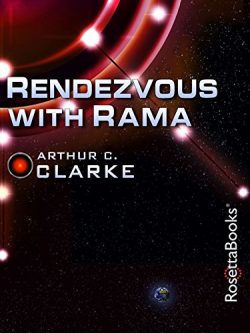
Arthur C. Clarke’s Rendezvous With Rama is one of a handful of novels that’s most likely to be found on any list of science fiction classics. Though the book was published in 1973, it’s well worth reading today. The story successfully creates a profound sense of awe that reflects a truly imaginative view of how alien intelligence might manifest itself. Unlike the bug-eyed monsters of the old space operas, the First Contact with intelligence in Rendezvous With Rama is actually believable.
The story is simple enough. By 2130, the human race had colonized the inner planets of Mars and Mercury and the larger moons of the gas giants. Because of a near-catastrophe in 2077, astronomers had mounted an intensive search for asteroids that might threaten human settlements. Then a curious traveling object appeared on a trajectory for the sun. Dubbed Rama, what seemed at first an asteroid is soon identified as an artificial construction. It’s a cylinder, with half-spherical caps on either end. The ship Endeavor is sent to investigate. “The long-hoped-for, long-feared encounter had come at last. Mankind was about to receive the first visitor from the stars.”
Rendezvous With Rama by Arthur C. Clarke (1973) 288 pages ★★★★★
A believable First Contact novel
The Endeavor‘s Commander Norton and his small crew land on Rama. Soon, they enter what is clearly an interstellar vessel. There they discover a pristine, enclosed world with what seem to be a circular ocean and cities dotting the inner surface of the cylinder. There is no sign of a sentient presence, merely what is obviously the product of an advanced intelligence. The novel describes their experiences investigating this strange new worldlet.
About the author
Arthur C. Clarke (1917-2008) is invariably included along with Isaac Asimov and Robert A. Heinlein on anyone’s list of the authors who helped put science fiction on the map. He was a man of many talents who also wrote about science and was an undersea explorer and television host. Clarke’s work lives on. Rendezvous With Rama and the film 2001: A Space Odyssey are generally acknowledged to be his most memorable efforts.
For further reading
I’ve also reviewed The City and the Stars by Arthur C. Clarke (Far-future fantasy from Arthur C. Clarke) and The Sands of Mars (Arthur C. Clarke imagined a voyage to Mars).
For more good reading, check out:
- The five best First Contact novels
- The ultimate guide to the all-time best science fiction novels;
- Great sci-fi novels reviewed: my top 10 (plus dozens of runners-up); and
- The top 10 dystopian novels reviewed here (plus dozens of others).
You might also check out Top 10 great popular novels reviewed on this site.
And you can always find my most popular reviews, and the most recent ones, plus a guide to this whole site, on the Home Page.

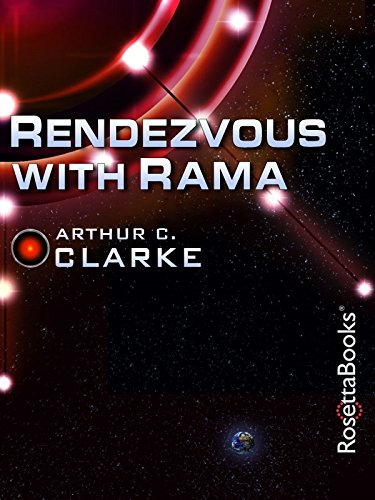

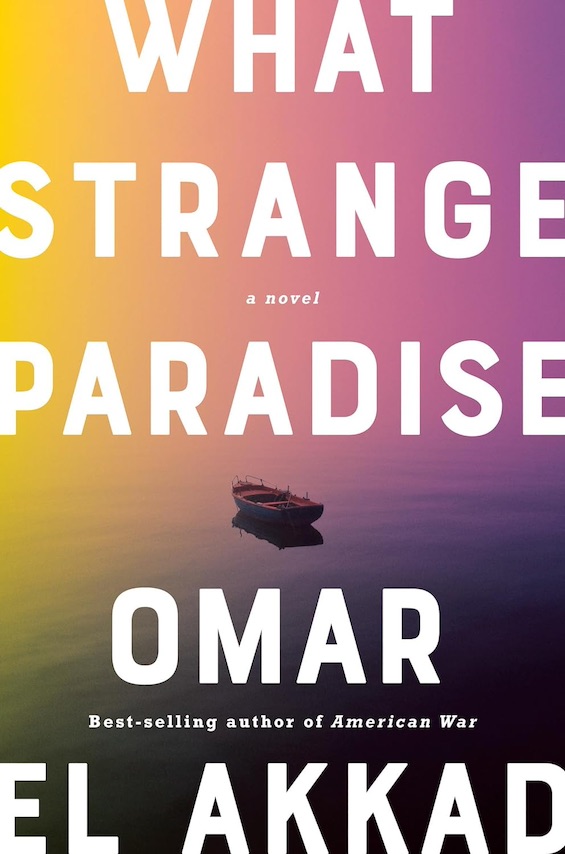
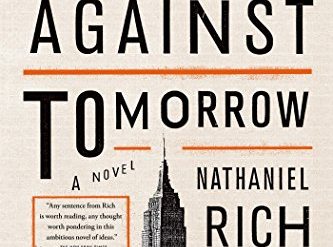
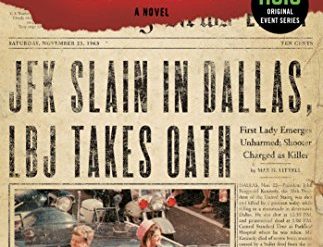





















Hi Mal,
I read this review with interest and was shocked to find that you mention Clarke to be a paedophile.
I decided to find out more and found the following on Clarke’s Wikipedia page. Do you think it is incorrect or do you have information which postdates it?
“The award of a knighthood had been announced in the 1998 New Year Honours list,[13][55] but investiture with the award had been delayed, at Clarke’s request, because of an accusation by the British tabloid the Sunday Mirror of paying boys for sex.[56][57] The charge was subsequently found to be baseless by the Sri Lankan police.[49][50] According to The Daily Telegraph, the Mirror subsequently published an apology, and Clarke chose not to sue for defamation.[58] The Independent reported that a similar story was not published, allegedly because Clarke was a friend of newspaper tycoon Rupert Murdoch.[59] Clarke himself said, “I take an extremely dim view of people mucking about with boys”, and Rupert Murdoch promised him the reporters responsible would never work in Fleet Street again.[60] Clarke was then duly knighted.”
I’d be interested to know if your information postdates this.
Best wisthes
Tony Harmsworth
I am ashamed to be corrected. I had read in several places of the accusation, and far more recently than the 2008 Sri Lankan investigation, which was asserted to be true by what I took to be credible sources. I see now that the preponderance of evidence is that he was not. I will remove the charge forthwith. Thank you for the correction.